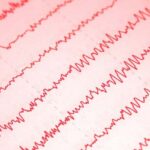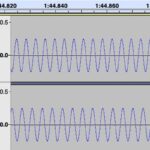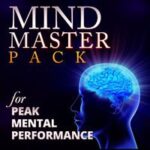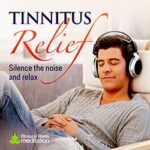The value of music therapy is increasingly being realized in the medical industry. One type of widely used music therapy being widely used is brainwave entrainment, which includes binaural beats.
But can this type of music help with depression?
Depression is quite a difficult area to measure because it is broad by definition and encompasses a range of symptoms, including anxiety, sleeping disorders and low confidence and self-esteem.
There are numerous studies on binaural beats and their ability to help with anxiety, which we have covered here, but only a few relating to depression directly – which will cover in this post.
But first, let's look at the bigger picture.
We know that soothing/relaxing music can reduce symptoms of depression. There have been a number of studies that demonstrate this. So let's look at this area first.
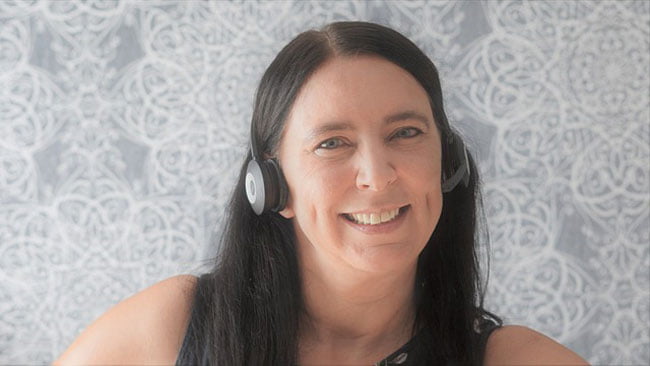
Music Therapy for Depression
Study 1:
A study conducted at the College of Nursing at Kaohsiung Medical University, Taiwan, randomly assigned 116 pregnant women to a music group and 120 to a control group (no music). The outcome for the music group was significant:
The music group showed significant reductions in stress, anxiety and depression after just two weeks, using three established measurement scales. In comparison, the control group showed a much smaller reduction in stress, while their anxiety and depression scores showed little or no improvement (1).
Interestingly, women in the music group also expressed preferences for the type of music they listened to, with lullabies, nature and crystal sounds proving more popular than classical music. These are typically the types of sound we use for the design of our binaural beats music.
This study was on pregnant women, who may be more likely to show signs of depression because of hormonal changes in the body and forced changes to lifestyle. So what about the general population, how would they fair? Let's look at another study.
Study 2:
Researchers conducted a meta-analysis of 28 studies, which covered a total of 1810 participants. Each study utilized music or music therapy as intervention to treat participants with depressive symptoms.
Again, the analysis concluded that the music has a positive effect:
The overall outcome of our analysis, with all significant effects considered, produced highly convincing results that music is a potential treatment option, to improve depression symptoms and quality of life across many age groups (2).
Study 3:
Havard Medical School also reports the benefit of music therapy for those managing pain, stating that it can help reduce the need for medication:
Over all, music therapy decreases pain perception, reduces the amount of pain medication needed, helps relieve depression in pain patients, and gives them a sense of better control over their pain (3).
But what about binaural beats music, specifically?
Binaural Beats & Depression
Binaural beats music goes beyond simply the effects of relaxation. We combine the benefits of relaxing music (using specific music tuning) and underlay the music with binaural beats frequencies that entrain the brain to specific states.
This is a two-pronged approach to music therapy, and therefore has the potential to be more effective than standard meditation music, for example. So let's look at a few studies.
Study 1:
In one pilot study designed to assess the psychologic and physiologic effects of binaural beats in humans, participants listened to a delta frequency CD daily for 60 days.
Psychologic and physiological data were collected before and after the 60-day intervention.
The psychologic aspect of the study used the following measurements: Depression (Beck Depression Inventory-2), anxiety (State-Trait Anxiety Inventory), mood (Profile of Mood States), absorption (Tellegen Absorption Scale) and quality of Life (World Health Organization-Quality of Life Inventory).
The physiological aspect measured: Cortisol, dehydroepiandrosterone, melatonin, insulin-like growth factor-1, serotonin, dopamine, epinephrine, norepinephrine, weight, blood pressure, high sensitivity C-reactive protein.
The study group was small, with just eight participants. However, the outcomes were positive, most notably decreasing anxiety and showing an increase in quality-of-life.
There was a decrease in trait anxiety, an increase in quality of life, and a decrease in insulin-like growth factor-1 and dopamine observed between pre and post-intervention measurements.
Binaural beat technology may exhibit positive effect on self-reported psychologic measures, especially anxiety. Further research is warranted to explore the effects on anxiety using a larger, randomized and controlled trial (4)
Study 2:
Another study looked at how binaural beats affected vigilance, mood and performance.
29 participants performed a 30-minute vigilance task on three different days while listening to pink noise containing sample tones or binaural beats in either the beta, theta or delta frequency ranges. Participants were kept blind to the presence of binaural beats to prevent bias.
The results concluded that the binaural beats did affect psychomotor performance in mood. In this study beta binaural beats were associated with less negative mood, and fewer false alarms during the visual vigilance task than in theta in delta frequency (5).
The latter outcome is not surprising because the theatre and delta frequencies would have provided greater relaxation for the participants and therefore made the vigilance task more difficult, whereas the beta binaural beats would have provided greater brain stimulation and made the task easier. The researchers may not have had the experience to identify this confounding variable.
Study 3:
This study looked at 35 elderly people in a retirement home, each over 65 years old.
Each participant listened to 30-minutes of familiar music with alpha binaural beats at 10 Hz via headphones. The participants listened in the afternoon, daily for 5 days, while sitting either on a chair or bed in a private room.
The study results indicated that after 30 minutes the participants showed a significant reduction in depression.
The results also showed a decrease in heart rate, systolic blood pressure, and LF norm of heart rate variability (HRV), and a significant increase on HF norm of HRV – indicating that the participants were very relaxed after listening.
The study concluded:
Familiar music listening with alpha binaural beats can be a non-invasive and suitable intervention to promote relaxation and alleviate negative emotion in older people with depressive symptoms in long-term care settings. After listening to the familiar music with alpha binaural beats 30 minutes in the afternoon for five days, the mean depression score was significantly decreased (6).
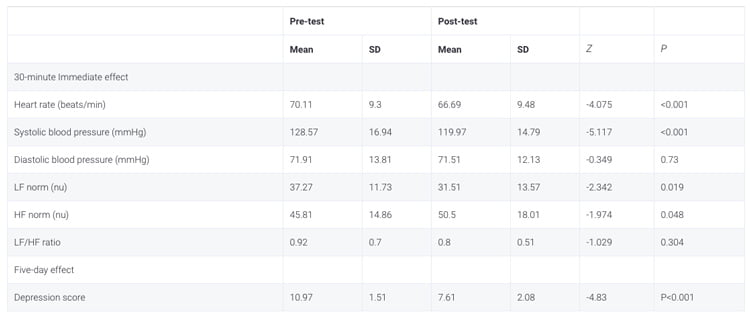
In Summary
One can make the case that the above studies have their limitations, in particular the sample size (number of participants), and in the case of ‘Study 3' the improvement in heart rate and at least some of the improvement in depression score could be attributed to the fact that the subjects were listening to familiar music.
However, if we look at other study outcomes on binaural beats for anxiety and sleep and relaxation, and look at the overall picture, we can safely say that there is a statistically significant effect on mood and how people feel when regularly using this form of music.
Binaural beats therapy is a holistic approach to improving state of mind. If anxiety is lowered and people are able to focus better and sleep better, then consequently their mood will improve. This has a positive knock-on effect in terms of self-esteem and productivity, and therefore a lowering in feelings of depression.
Unfortunately, as we have said before, natural therapies, particularly music therapy, do not attract funding from big medical organizations and therefore the number of available studies is far smaller than more lucrative areas of industry.
Music therapy is an ancient medicine, one that goes right back through ancient Greece and to our tribal ancestors. It has always been a part of our wellbeing and should continue to be so. Indeed, as cited earlier in this article, Harvard Medical School state that it is effective in reducing pain medication – something that directly challenges the prescription medication industry.
However, there is no reason the two cannot work together, particularly in serious cases of depression, anxiety and insomnia.

